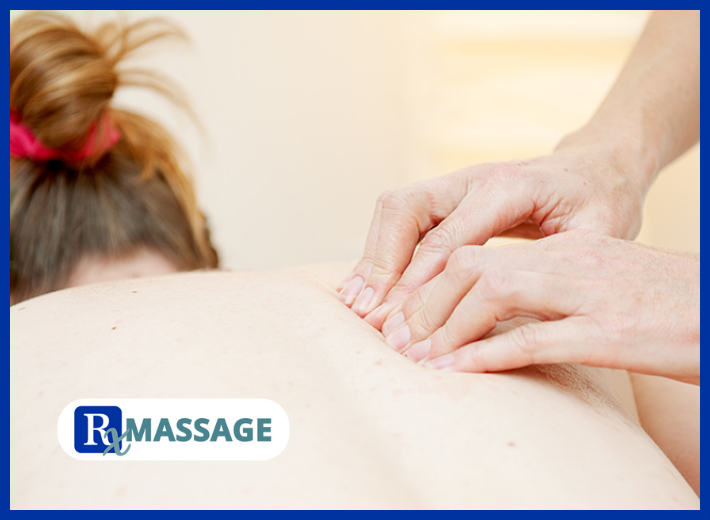The Hidden Energy Drain

01
2023
Do you often find yourself feeling drained and fatigued, struggling to keep up with the demands of daily life? It’s time to break free from the cycle of low energy and reignite your vitality. Let’s unveil the secrets to boosting your energy levels and renewed vigor. Spoiler alert: coping with stress in healthy ways is key, and we’re here with massage sessions to provide you with the self-care time you need.
It doesn’t take much effort to score a quick burst of energy through a caffeine-infused drink, gummies or snack bars that promise more pep, alertness and focus. According to the Centers for Disease Control & Prevention (CDC), 80% of adults eat or drink a caffeine source every day. So, if you’re one to reach for a pick-me-up like these, you’re not alone. A 2020 RestoreZ survey of 2,000 Americans reported that 42% of people feel low on energy as early as noon. Several reasons may explain why you have subpar energy levels. Some of them can be out of your control, but others, like certain lifestyle choices, can also be draining. Maybe you’re restricting carbs or not eating enough calories in hopes of shedding weight, which makes you feel exhausted all the time. That’s because your body is short on the fuel it needs to function optimally. Or maybe your work schedule is jam-packed, and you’re so busy taking calls that you’re not drinking enough H2O, which can also decrease your energy levels. And that brings us to the biggest habit you should break for more energy.
What Is the No. 1 Habit You Should Break for More Energy?
The No. 1 habit you should break for more energy is not getting enough sleep. Like food and water, sleep is a basic human need. While Disney princesses wake up in full makeup, well-rested and singing ballads with birds, most Americans arise feeling drained, cranky, and sluggish. That’s because, according to the American Academy of Sleep Medicine, most adults need seven or more hours of sleep each night. However, the CDC reports that 1 in 3 adults get less than these recommendations.
And skimping on sleep isn’t something to celebrate (we’re looking at you hustle culture). It can significantly affect your health, mood and brain function, so you’re more prone to a host of medical problems from heart disease and depression to cancer, arguing with people you love, making mistakes on the job and even risking a car accident. But let’s also look at the connection between too little sleep and low energy.
How Sleep Robs You of Energy
According to MedlinePlus, fatigue can happen from inadequate sleep, which could mean lots of things related to both the quantity and quality of rest you get—including not clocking enough hours, having trouble nodding off or waking up frequently during the night. According to a 2023 review published in StatPearls, sleep helps your body conserve energy so you don’t have to exert so much during the day. Sleep restores energy by repairing and replenishing cellular processes that deplete during wake times, like tissue growth and muscle repair. If one of sleep’s primary purposes is for conserving and restoring energy, it’s no wonder why being well-rested can refresh you and help you feel more alert.
Your hormones may fluctuate depending on your sleep routine as well. According to a 2023 review published in StatPearls, chronic sleep deprivation may raise your levels of the stress hormone cortisol. High cortisol levels are linked with depression, anxiety and stress, and mood disturbances disrupt restful sleep, further zapping your energy stores.
Additionally, the study cites that poor sleep could lower your testosterone levels. Testosterone enhances the functioning of two chemical messengers in the brain—serotonin and GABA. GABA functions as a sleep enhancer and stress reducer per Frontiers in Neuroscience, while serotonin assists with initiating and maintaining sleep, according to research published in Sleep Medicine.
And Harvard Health notes that falling short of enough shut-eye is linked with growing markers of inflammation, including C-reactive protein, cytokines and interleukin-6. It may be time to lay the groundwork for better sleep since inflammation might contribute to your fatigue.
How to Get the Sleep You Need
Be cautious with caffeine
There’s nothing wrong with reaching for an energy-boosting drink, but if it’s after 3 p.m., it may be a good idea to skip it. Research published in the Journal of Clinical Sleep Medicine suggests that curbing your caffeine intake six hours before bedtime may help support your sleep routine. And if you’re hankering for an alternative, try decaf coffee or tea. Be mindful of the supplements you may take daily, too, as some may also contain caffeine.
Say hello to hydration
Water makes up 75% of your brain, and research suggests there’s a link between hydration and cognitive function, according to a small 2022 study published in the International Journal of Environmental Research and Public Health. The same research found that when dehydrated people drank enough water, it improved their energy levels, mood, short-term memory and reaction time.
Further, lack of sleep may contribute to dehydration. In a large 2019 study published in Sleep, people who got only six hours of shut-eye per night had higher rates of dehydration—although the researchers aren’t totally sure that the two are connected. Be sure you’re drinking water throughout the day and not just catching up at night, because waking up to pee frequently at night can affect how well you sleep too.
Start a sleep regimen

Setting a bedtime may seem like a no-brainer, but doing last-minute work on your laptop or playing games on your phone before bed can be all too tempting. If you go to bed at varying hours each day, it may plummet your energy levels. A 2020 review published in Applied Physiology, Nutrition, and Metabolism that looked at 41 studies, including 90,000 participants, found that earlier sleep times and a consistent sleep schedule were associated with better health. Sticking to regular sleep and wake times can help sync your body’s internal clock, so you get better rest and get the vitality boost your body needs.
Put an end to the racing thoughts
When your head hits the pillow at night, thoughts may begin to flow, and now you’re obsessing about something you regret saying to a friend or what you’re going to wear to a party next week. Try to flip a switch and turn the thoughts off in our brains that plague you at night and rob you of rest. What may help is to keep a small notepad on your nightstand where you can jot down some of your thoughts under dim light to get them out of your head so you can snooze more soundly.
Support sleep with better eats
Dietitians recommend eating balanced meals that include fiber and protein for sustained energy levels without crashing. Aim for eating nutrient-dense foods for better sleep, which might include our Peanut Butter-Banana Cinnamon Toast for a pre-bedtime snack.
Cope with stress in healthy ways
Stress creates a response in your body that may involve hormonal, brain and behavioral changes, according to a review published in Neuroscience and Biobehavioral Reviews. Your sleep-wake cycles and circadian rhythms are intimately tied to your stress. Talking to others, engaging in enjoyable exercise, meditation, breathing exercises and connecting with your community are some ways to take good care of yourself and better cope with life stressors to support sleep. Many people choose alcoholic beverages to find stress relief, but it could make matters worse for your stress and sleep. Consider moderating your alcohol intake or switching to alcohol-free cocktails for a while to see how it may help your sleep routine.
Address underlying sleep disorders
Many lifestyle habits may be within your control to change, but some may require further help and support. Sleep disorders may include narcolepsy, sleep apnea and insomnia. According to the American Psychiatric Association, insomnia is the most common sleep disorder, and it affects a third of the U.S. population according to StatPearls. Aside from wreaking havoc on mental function and work performance, persistent sleep loss is a risk factor for diabetes, heart disease, depression, anxiety and chronic pain. If you have trouble sleeping at least three times per week for more than three months, you may have chronic insomnia. Try not to brush off your slumber troubles and bring them up with a medical provider you trust.
Revitalize your energy today! Book a rejuvenating massage session to unlock a world of tranquility and vitality. Our expert therapists are ready to help you discover the benefits of deep relaxation, stress relief, and increased energy. Schedule an appointment today at (949)-276-5401. You can also connect to our IG for more tips.
Reference: [https://www.eatingwell.com/article/8072286/habit-to-break-for-more-energy-according-to-a-dietitian/]
Success Stories



